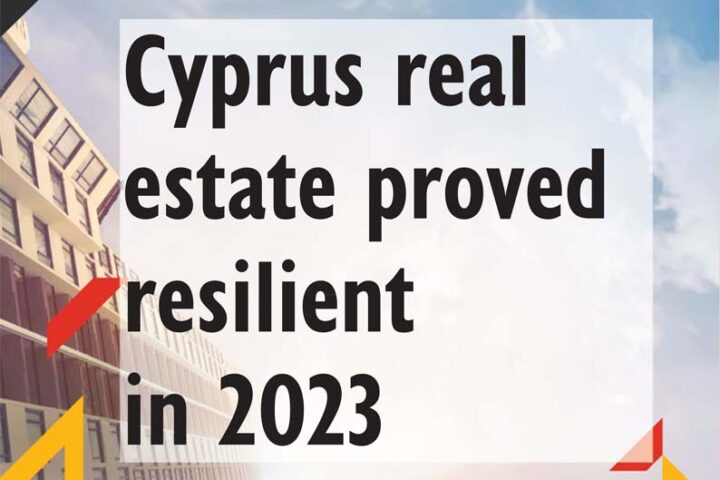One of the most recently odd things about real estate is the insurance scam, leaving many people uninsured.
It brought the attention of some of MPs, but nothing has happened since then, nor do I expect anything to, but it is good for the public to know.
Co-signing somebody else’s bank loan as a guarantor is another thing to watch.
In a recent case, the client signed a guarantee on behalf of a buyer/borrower, up to the date of issue of a separate title for an apartment.
The title was issued four years ago, but despite various invitations for the transfer, the buyer did not turn up, nor did she respond to letters or phone calls.
The financier is also suing the guarantor, so if the lender is successful, it will collect the guarantee, whereas the buyer (the borrower) will escape.
We were told that the guarantor must take the “appropriate” steps to have the apartment transferred, which means to clear any taxes due by the borrower and then sue the unresponsive borrower (around seven years in legal battles).
Another case saw a buyer who bought an apartment in Limassol (a well-known furniture chain), signed a sales contract using its name and then asked the seller to change the contract with the same terms but changed its name, adding an A at the end of its name.
The purchaser did not pay, and the seller sued.
After five years, the court decided the original buyer was not the same as the second (the company) with the additional letter A.
Is this not fraud?
In a case along the Larnaca beach area, a group of buyers (10 out of 80) came up with all sorts of reasons why the administrator of the common expenses should go.
He eventually did, and the same group undertook the job resulting in the inability to collect the common expenses, and now the project has been run down.
Other buyers got together and decided to sue the new administrative committee for the loss of value of their property.
It is a most interesting case to watch as it will guide those who think they can do better.
In a Peyia project, the buyer claimed damages due to dampness in the walls of his unit.
We appeared as an expert witness, and on inspection, the gardener happened to be there, told us that the British buyer turned the water sprinklers on his wall (presumably so that he has a claim against the developer). He lost. It took four years to resolve.
In another case in the Ayios Theodoros neighbourhood in Paphos, a Russian buyer claimed the agent sold him an apartment for more than its market value.
He provided as witness the salesperson of the agent, who said the agreed sales price was the result of negotiations between the buyer and the seller and the deal was concluded behind “closed doors”.
He lost, and now he has a ‘memo’ on the apartment which means that he cannot sell or dispose of the property unless he compensates the agents for the loss of time, costs, etc.
Electronic Auctions scam the sales procedure where vital points are not disclosed to potential bidders.
An apartment was let to a company as a 2-bedroom unit and was found out afterwards that eight people are occupying it.
Non-payment of common expenses forced the administrative committee to disrupt the water supply. However, because it is a common service, hot water is still running for them (and in the meantime, the remaining residents pay for it).
A legal procedure is now underway by the administrative committee against the owner.
Now, the remaining “good payers” have to come up with €3,000 for legal action in the hope to collect the dues sometime in the future, in addition to costs for possible eviction.
I have suggested the government encourage investigating journalists to focus on these day-to-day wrongdoings.
Illegal actions by municipalities and lack of transparency are issues not only for the changes we need but also because they do not respond to public letters.
I have written on several occasions about how the Paralimni Municipality let government-owned land on the beach (converted to a restaurant).
After five years of pressure, we are now told that the municipality had no right to occupy or let the property in the first place.
An older court case involved a beachfront property at Neapolis, Limassol.
The judge decided that because there was a government strip of land [20 feet wide], the property under evaluation was not considered beach land.
The compensation received was €250,000.
The owner appealed to the European Court of Justice, who awarded him €2 mln in damages.
A case that still haunts any authority going for the compulsory acquisition process.
It is about time that a common body is set up comprising buyers, tenants, financiers, and other interested parties (including developers), which will act as a pressure group to improve the situation of the real estate sector, with the hope for a better future.
Antonis Loizou, Real Estate Valuer, Property Consultant & Estate Agent










